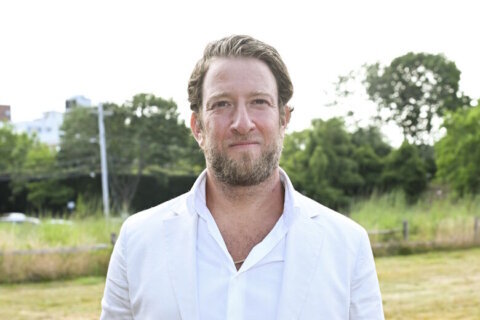BALTIMORE (AP) — In the months since Maryland eliminated the statute of limitations for child sexual abuse claims, more than 100 victims have filed a slew of lawsuits alleging horrific treatment inside the state’s youth detention facilities.
State lawmakers passed the Child Victims Act with the Catholic Church clergy abuse scandal in mind after a scathing investigative report revealed the scope of the problem within the Archdiocese of Baltimore, which filed for bankruptcy to protect its assets from the impending wave of lawsuits.
With claims against the diocese now relegated to bankruptcy court, an unexpected spotlight has settled on the state’s juvenile justice system.
At least 50 plaintiffs sued the Maryland Department of Juvenile Services in early October, when the new law took effect. Rather than effectively rehabilitating at-risk youth, the department “locks them inside a cage to become the prey of sadistic staff whom they cannot escape,” according to one of six lawsuits that were filed as a coordinated effort between four law firms.
Since then, more complaints have been trickling in, with the latest filed earlier this week.
“Incarcerated people are particularly vulnerable because the correctional officers control pretty much every aspect of their lives,” said Jerome Block, an attorney with the New York firm Levy Konigsberg, which represents the plaintiffs in the latest case alongside co-counsel Brown Kiely of Bethesda.
“It’s a really insidious, systematic type of sexual abuse,” he said. “The complaints filed so far are only the tip of the iceberg.”
Block said he hopes the flurry of litigation will spur policy changes to prevent future abuse. However, the pending cases could encounter significant delays because the Child Victims Act is facing a widely anticipated constitutional challenge that must first be resolved.
A spokesperson for the state Department of Juvenile Services, Eric Solomon, said the agency is aware of the recent allegations and reviewing the lawsuits.
“DJS takes allegations of sexual abuse of children in our care very seriously and we are working hard to provide decent, humane, and rehabilitative environments for youth placed in the Department’s custody,” he wrote in a statement.
The complaints target juvenile justice facilities across the state. Some have closed in recent years but several remain in operation — including the Charles H. Hickey Jr. School northeast of Baltimore, which attorneys called “a hotbed of sexual abuse” in a lawsuit filed Wednesday on behalf of 37 men incarcerated there as children. The complaint accuses the Department of Juvenile Services of turning a blind eye for decades to a “culture of abuse” inside its detention facilities.
Staff members at the Hickey School would routinely enter children’s cells at night and rape them, sometimes in groups, according to the complaint. Many of the victims faced physical violence and threats, including solitary confinement and unfavorable behavior reports that could extend their incarceration. Some abusers would offer the children bribes such as snacks, cigarettes and more time outdoors, the complaint says.
In another lawsuit filed last week, 20 women alleged abuse at a detention center for girls in Laurel, Maryland, which the state closed last year amid ongoing efforts to improve its juvenile justice system and avoid sending incarcerated children hours away from home.
“Many girls who simply needed help went straight from difficult home lives into a traumatizing, prisonlike environment where they were regularly sexually abused,” that lawsuit alleges.
Earlier complaints targeted Baltimore’s youth jail, among other facilities.
At the Baltimore City Juvenile Justice Center, “Any attempts at reporting the conditions of the facility are quickly dissuaded by bribery, and if unsuccessful, threats and violence,” attorneys from four law firms, including Bailey Glasser, wrote.
When the Child Victims Act was drafted, lawmakers assumed its constitutionality would be challenged and included a provision that would put pending lawsuits on hold until the Supreme Court of Maryland can decide whether it’s constitutional. The Archdiocese of Washington, which covers parts of Maryland, filed such a challenge earlier this year in response to a lawsuit alleging clergy abuse.
Under the previous law, child sexual abuse victims couldn’t sue after turning 38.
Copyright © 2024 The Associated Press. All rights reserved. This material may not be published, broadcast, written or redistributed.







